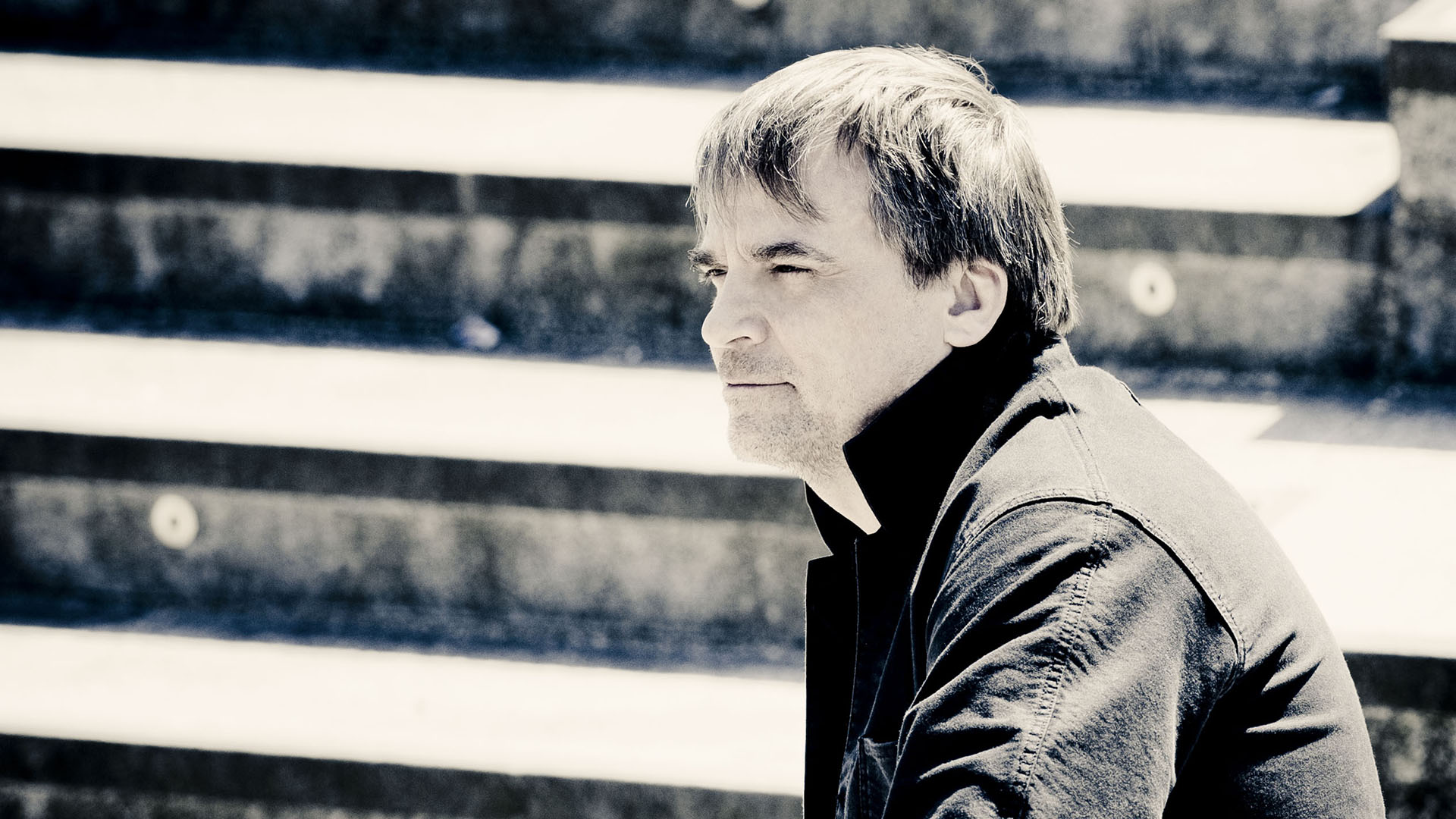Step into a musical time machine! The Helsinki Philharmonic Orchestra welcomes you to a gala concert presenting exactly the same programme as the orchestra’s very first concert 140 years ago in October 1882. Kajanus is replaced by Storgårds, concertmaster Sattler by concertmaster Kauppinen, the Assembly Hall of the University of Helsinki by the Helsinki Music Centre, and the Grand Duchy by the Republic of Finland, but the concert pieces, their order and the philharmonic spirit are unchanged!
John Storgårds
Chief Conductor of the BBC Philharmonic Orchestra and Principal Guest Conductor of Canada’s National Arts Centre Orchestra Ottawa, John Storgårds has a dual career as a conductor and violin virtuoso and is widely recognised for his creative flair for programming as well as his rousing yet refined performances. As Artistic Director of the Lapland Chamber Orchestra, a title he has been holding for over 25 years, Storgårds earned global critical acclaim for the ensemble’s adventurous performances and award-winning recordings.
Storgårds appears with such orchestras as Berliner Philharmoniker, Bamberger Symphoniker, Gewandhausorchester Leipzig, Münchner Philharmoniker, Rundfunk-Sinfonieorchester Berlin, ORF Radio-Symphonieorchester Wien, Netherlands Philharmonic Orchestra, Orchestre National de France, Orchestra Sinfonica Nationale della RAI, BBC Symphony Orchestra and London Philharmonic Orchestra as well as all major Nordic orchestras including the Helsinki Philharmonic Orchestra, where he was Chief Conductor from 2008 to 2015. Further afield, he appears with Sydney, Melbourne, Yomiuri Nippon and NHK Symphony Orchestras as well as Boston Symphony Orchestra, Chicago Symphony Orchestra, The Cleveland Orchestra, New York Philharmonic and Detroit Symphony Orchestra.
https://www.johnstorgards.com/
Pekka Kauppinen
Finnish violinist Pekka Kauppinen (b. 1966) has been leader of the HPO since 1991. He has long been familiar with the Romances on tonight’s historical programme; they are, he says, true Beethoven gems – innocent romantic mood pieces that inspire the player to seek out all the layers of beauty in the instrument. He had, by contrast, never even heard of Miska Hauser. “My interest in the Hungarian Rhapsody grew as I began to appreciate the connection between the idiomatic writing and the composer’s life story. A child prodigy who later travelled the world as a virtuoso, Hauser became a mythical figure for me. Could I have survived four years touring Australia with my violin?”
Being the soloist before his own orchestra always brings Kauppinen out in a sweat, he says, but luckily he has done it many times before and has always been supported by the warmth of both the atmosphere within the HPO and the sound it produces.
Debut concert of the HPO 140 years ago
The forerunner of the Helsinki Philharmonic Orchestra, as it is known today, gave its debut public concert under its first conductor, Robert Kajanus, 140 years ago, in a mixed programme of serious and popular works such as was typical at the time. There was one symphony, Beethoven’s Fifth, but no great solo concerto. The orchestra’s leader, Josef Sattler, did assume the role of soloist, however, in the first of Beethoven’s two Romances for violin and orchestra, one of which was possibly to have been the slow movement of a concerto that never got finished. Sattler also had a chance to shine in the Hungarian Rhapsody by Michael Hauser (better known as Miska Hauser, 1822–1887), one of the great violin virtuosos of his day.
After the interval, the orchestra played the Hebrides Overture by Felix Mendelssohn (1809–1847), inspired by a visit to England and Scotland and the wild beauty of the Scottish islands and Fingal’s Cave. Johan Svendsen (1840–1911) was a leading figure in Norwegian and Danish musical life, and one of the first to conduct many classics – among them Wagner and Verdi operas and Beethoven’s Ninth Symphony – in the Nordic countries. Robert Kajanus had studied with Svendsen in Paris, hence the inclusion of a work by him: Two Icelandic Melodies. Svendsen also arranged The Herd Girl’s Sunday by fellow Norwegian Ole Bull (1810–1880), hailed the “Paganini of the North”, who had arranged the folk songs after hearing them on a visit to Iceland in 1867.
The concert in 1882 ended with the Jubilee Overture by Carl Maria von Weber (1786–1826). It ends with what was once both the unofficial national anthem Heil dir im Siegerkranz (Hail to Thee in the Victor’s Crown) of the German Empire and the royal anthem of Prussia until 1918. The melody is better known today as God Save the King and was an English tune that spread to other countries in the 19th century and was there equipped with a suitable local text.
The Helsinki Philharmonic Orchestra’s first concert got positive, enthusiastic reviews, though some claimed that a few things still needed a little adjustment. But as K.F. Wasenius pointed out in the Helsingfors Dagbladet, Rome was not built in a day. The critics forecast a brilliant career for Kajanus and expectations ran high for the orchestra he had founded. All in all, a promising beginning.

